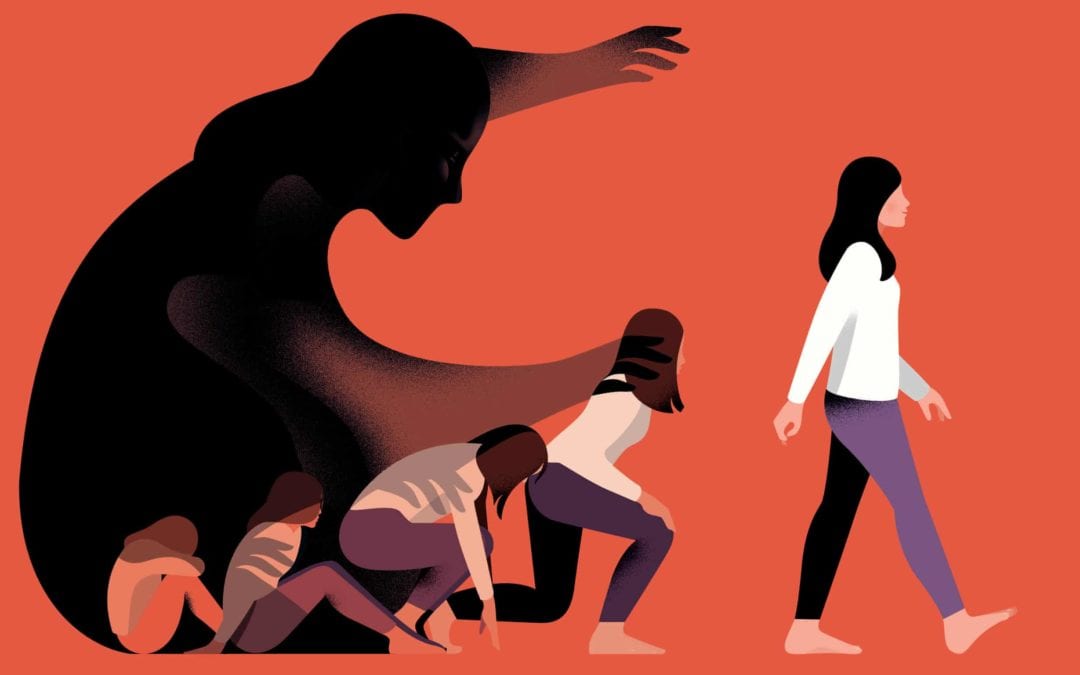US researchers have found early intervention can help prevent negative experiences in infancy turning into long-term health risks
by Lauren Zanolli in New Orleans. The Guardian.
When Sabrina Bugget-Kellum walked into a neighbourhood clinic in New York for a routine appointment in in 2016, she was desperate. Her son was in prison. She was trying to look after his two young children, who were aged one and two. Their mother was emotionally unstable. Bugget-Kellum did not want the chaos of the adults’ lives passed down to another generation.
“We didn’t know if they would be safe with their mother,” she recalled recently. “I began to pray, please God, I need some help. There were so many things going on.”
While at the clinic, Bugget-Kellum learned about a new parenting programme designed for carers of young children who have faced early adversity such as domestic abuse, homelessness or the loss of a parent to incarceration. “It was like I had my ammunition and I knew how to fight,” said Bugget-Kellum of the programme.
At bottom there is a revolutionary idea. It’s about moving from ‘what’s wrong with you?’ to ‘what happened to you?’
Leslie Lieberman
The scheme, called Attachment and Biobehavioural Catch-up (ABC), pairs parents with a coach trained in the needs of infants and toddlers who have experienced trauma.
Bugget-Kellum’s coach reinforced simple techniques to form a healthy bond between adult and child, and helped her work through her own emotional wounds to create a less stressful environment at home. The results were so transformative, she said, that she started working as a parent coach for the same programme.
“I have a son who is 26 and in prison, so I’m thinking maybe had I had an opportunity to get some of this, I don’t know, maybe I could have been more nurturing,” she said. “ABC gave me the confidence to say, you can do this. I don’t have to be angry with myself any more.”
Traumatic or highly stressful childhood experiences are known to have lifelong emotional, behavioural and physiological impacts. Children who are abused, neglected, or exposed to conflict, violence and horror, are far more likely to have drink and drug problems, criminal records and perhaps resort to violence and abuse themselves. But researchers have also found that interventions such as the ABC programme can significantly buffer the damaging effects of stress and trauma, even at a biological level.
A growing number of advocacy and public health organisations are working to bring “trauma-informed” approaches into the mainstream for doctors, carers and first responders.
The crucial role of caring and calming adults
Scientists are continuing to untangle the complex biological effects of childhood trauma on the brain and body. Research in the past decade points to “toxic stress” as the root of the connection between adverse childhood experiences (Aces) and health problems in adult life.
The theory is that continuous or repetitive exposure to stressful situations through, say, domestic abuse, or growing up in poverty, causes the body’s natural fight-or-flight stress response to stay switched on. Researchers say that without the influence of a caring and calming adult the stress becomes “toxic”, and elevated cortisol levels change the functioning of the child’s brain, weakening the immune system and even altering the way a child’s DNA is “read and transcribed”.
“This is the source that a lot of the problems in our society can be traced to,” said Leena Singh, programme director for the National Paediatric Practice Community on Adverse Childhood Experiences (NPCC), which has an office in San Francisco. “There is a saying in public health – we need to move upstream. This is the work that is the root of the root.”
Singh’s organisation is working to integrate screening for adverse childhood experiences into standard paediatric primary care. The programme hopes to recruit 1,000 clinicians to screen 300,000 children for Aces over three years and is running pilot sites at six clinics across the US, with plans to add more.
Singh says paediatricians have a vital role to play. They could refer patients for behavioural therapy or social support, but in medical schools they are rarely trained in the impacts of toxic stress. There are logistical hurdles to overcome too, such as how to add another process on to providers that are already overburdened, and how to bill insurers for time spent screening.
NPCC says it is working through its pilot sites and member network to resolve those problems. It is also involved, through its parent organisation, the Center for Youth Wellness, with a clinical study on the effects of Ace interventions on certain biomarkers.
Ultimately, Singh believes, their work could contribute to long-term shifts in the paediatric field. “If we can address and intervene early when some of these things happen in very young children we can actually prevent some of the risky behaviours and health impacts later in life.”
Do you know your score?
Discover your ACE score and unlock a new understanding of your life. Take the test and gain insights into how your early experiences shape your well-being. Don't let your past define you – empower yourself with knowledge.
